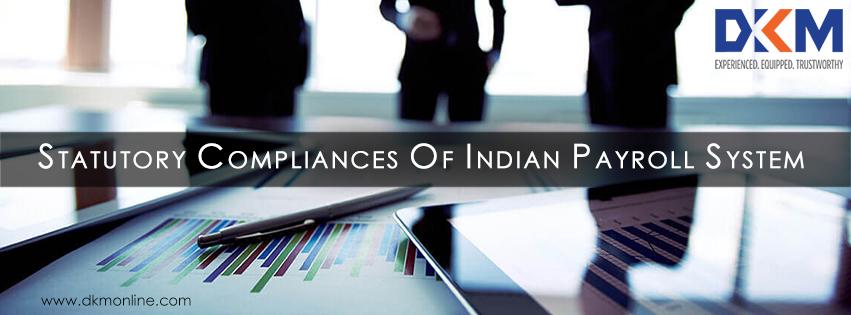Payroll management system is all about maintaining the records of employees, from recruitment till there retirement. Payroll Management is simply used to build an application program for maintaining the records of employees working in the company.
A payroll system involves everything that affects the salary of employees such as: Keeping a track record of leaves, records of timings, medical bills and medical leaves for reimbursement, employee loans, child support payments, tax deductions, employee contribution towards PF, etc.
Before we go further to understand the statutory compliances in Indian Payroll System, let us understand the basic aspects of payroll management system.
ASPECTS OF PAYROLL MANAGEMENT SYSTEM:
• Payroll Accounting: Maintaining records of payroll transactions, processing of pay-checks and payments to temporary staff or contract labour.
• Leave Management: Maintaining leave and time record registers, preparing of holiday chart, adjusting the leaves of employees etc.
• Employee Handbook: Preparing a guiding manual for the employees to let them know regarding the company’s policies and procedures.
• CTC calculations: Providing easy CTC break-up calculations in order to plan the tax of employees and reduce their burden.
• Paying dues to Government: Paying of local taxes, tax deductions of employees from salary, employee and employer’s contribution towards PF, etc.
STATUTORY COMPLIANCES IN INDIAN PAYROLL SYSTEM:
Under the Statutory Compliances in Indian Payroll System, following are the various applicable laws:
• Minimum Wages Act: It requires fixing of minimum wages for the various skilled and unskilled laborers. It guarantees minimum survival for the workers and helps their families to take care of their education and medical needs as well.
• Payment of wages Act: The Payment of wages Act, 1936 guarantees payment of wages on time and without deductions except those specially authorized by the act. Under the act wages should be paid before the expiry of 7th day of the next wage period where less than 1000 workers are working and before the expiry of 10th day of the next wage period where more than 1000 workers are working.
• Maternity Benefits Act: A Women employee is entitled to maternity leaves of 26 weeks (amended in 2016 from 12 to 26) at a rate of her daily average wage for the period of absence maximum to 26 weeks.
• Employees Provident Fund (PF) and Miscellaneous Provisions Act: Every employee and employer is required to contribute an equal percentage of employee’s salary towards public provident fund for which benefit is given to both employer and employee. Employee receives this amount at the time of leaving the job.
• Gratuity Act: Gratuity is the amount given by employer to the employees at the time of leaving of their job when they have completed their five years of service. The employee who has served an organization for a period of five years has the right to receive this gratuity.
• Employee State Insurance Act: ESI fund is maintained by ESIC for the employees earning wages equal to or less than Rs.15,000, so as to provide cash and medical benefits to them and their families.
• Shops & Establishments Act: Every establishment should maintain record of Approval from Department of Labor, maintaining of records of employment, fines, deductions, salary, advances, holidays, etc. Working hours per day and per week should be maintained and working conditions requirement for children should be taken care of.
• Contract labor regulation Act: Contractor may employ contract labor only after obtaining a valid license from the licensing officer. The contract labor should be paid minimum wages and his wages should be paid every month. Proper records should be maintained for contract labor as is done for permanent labor.
• Tax Deduction at Source (TDS): Every employer is required to deduct TDS under section 192 of Income Tax Act, 1961, if the salary is above the highest amount exempt from tax. For which Form-24Q and Form-16 needs to be filed.
• Professional Tax: Professional Tax or employment tax is a state-based tax. It is one of the statutory deductions from the gross income before computing the tax.
You can connect to us for Payroll Services for Large Businesses, Payroll for MNCs which seek Payroll Services across India and abroad and we also customized payroll solutions for SMEs and Startups.
The above are the major statutory compliances in the Indian Payroll System. If you have any further query or need detailing, feel free to write to us or you can also speak to our representatives on, 011- 42597777

